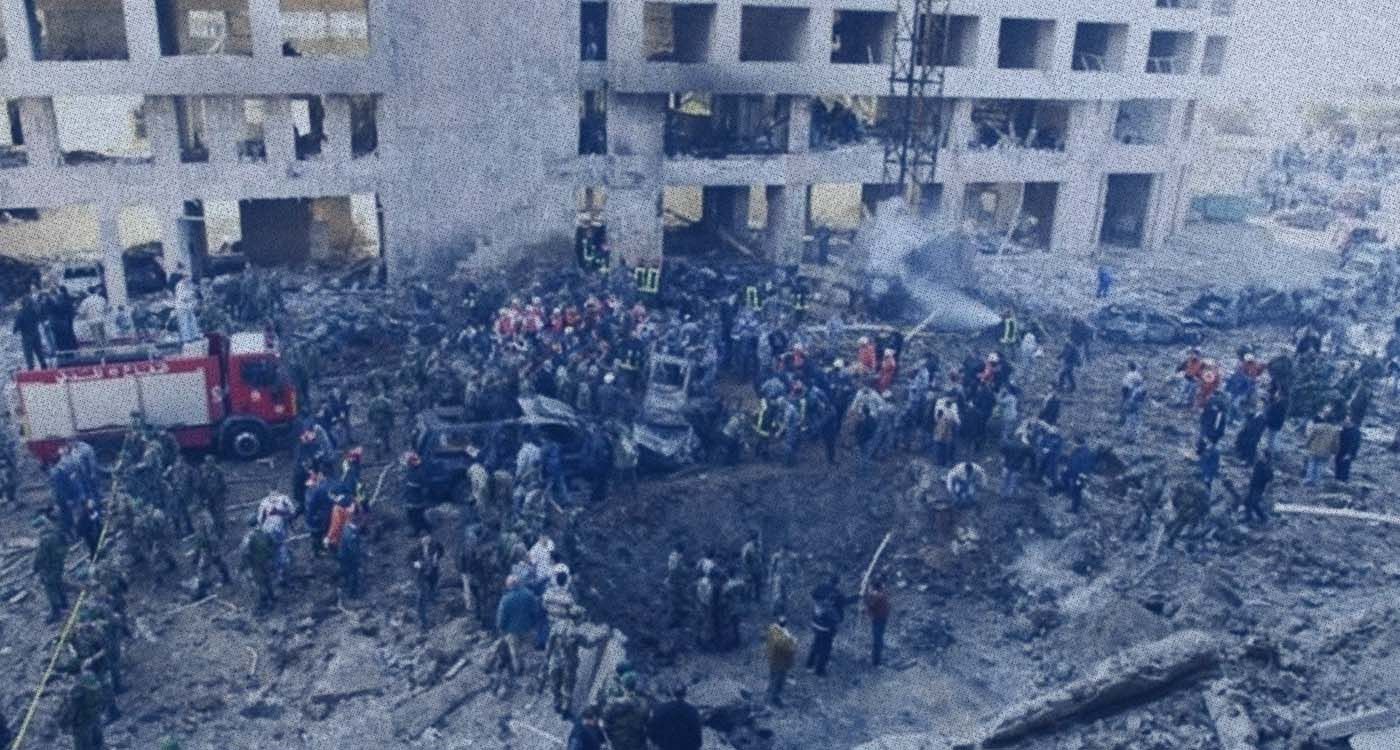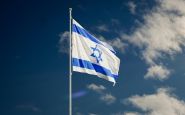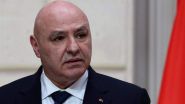
A textbook example of deceit and blatant bad faith — that’s how one could describe the speech delivered late last week by Hezbollah’s secretary-general, Sheikh Naim Qassem. With a straight face, he called on Saudi Arabia to “open a new page in its relations with the resistance,” and he added, almost innocently, that “the weapons of the resistance are directed against the Israeli enemy and not against Lebanon or any other party in the world.”
Perhaps the pro-Iranian party’s chief made a show of reaching out to Riyadh because he sensed very dark clouds gathering on the horizon. If that was the case, he sounded far from convincing — and clearly not convinced himself. His words clash sharply with Hezbollah’s media outlets, which have been openly pouring venom on Saudi Arabia for some time. Could this contradictory stance reveal internal party divisions, reflecting a deeper split within the Iranian regime between its radical and pragmatic wings?
Transparency is hardly a strong feature — far from it — of Hezbollah and its regional backer, so it’s hard not to view the words of the pro-Iranian party’s “number one” with a heavy dose of skepticism. It’s worth noting that the “reconciliation” agreement reached between Saudi Arabia and Iran in 2023 under China’s auspices did nothing to curb Iran’s attacks on Riyadh.
It’s clearly difficult to “turn the page” so easily, as Sheikh Qassem suggests, when lies and underhanded maneuvers have long been part of Hezbollah and its mentor’s playbook. The past and present of the Pasdaran ally make it hard to take their supposed conciliatory gestures at face value.
The secretary-general of the Shia group insists that “the weapons of the resistance are not directed against Lebanon or any other party in the world.” Yet, he seems to have conveniently forgotten that just a few days ago he declared, “there will be no life in Lebanon if the government goes after the weapons of the resistance.”
Looking further back, it’s worth remembering that Hezbollah used its weapons to violently eliminate the first national resistance — a leftist, secular movement formed in the wake of Israel’s June 1982 offensive. As Saida MP Oussama Saad pointed out, this episode also revealed the “confessional and sectarian” character that Hezbollah imposed on its so-called “resistance.” Does Sheikh Naim Qassem also remember the long and bloody war his party waged in the 1980s against the Amal movement?
How can anyone forget the tragic events of May 7, 2008, along with the grim string of political assassinations — from Rafic Hariri to Lokman Slim, including numerous leaders of the Cedar Revolution killed in operations linked to Hezbollah — not to mention the failed attacks on May Chidiac and Marwan Hamade? Meanwhile, can we ignore that the so-called “resistance” spent years undermining the state, crippling the national economy by smuggling government-subsidized goods on Hezbollah’s orders?
On the international stage, what “resistance” are the Pasdaran’s proxies referring to when, for more than ten years, they sent their young fighters to Syria to defend the tyrannical Assad regime? Was sending instructors to Yemen to train the Houthis to bomb Saudi Arabia an act of resistance against Israel? And does setting up subversive and terrorist cells in Bahrain, Kuwait, Cyprus, Bulgaria, Germany, the UK, France, Venezuela and Argentina count as “resistance” thousands of kilometers away from the Israeli state?
We’re reminded of these facts not just in response to Sheikh Qassem’s speech, but also because the leaders of the pro-Iranian group flood us almost daily with statements about preserving the “resistance” and praising its “benefits,” despite the deadly consequences. The fallout is obvious: a string of Hezbollah commanders eliminated by Israeli airstrikes, and increasingly frequent raids on the party’s positions. But ultimately, does it even matter? The Islamic Republic is fighting to the last Hezbollah militiaman to secure a priceless bargaining chip for possible geopolitical and economic deals with the United States.




Comments